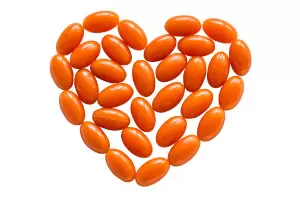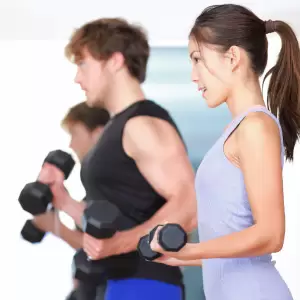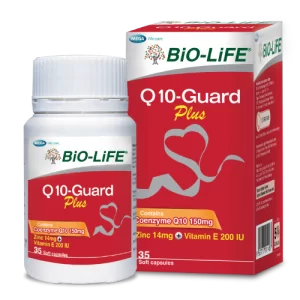
Co-Q10: The Fuel to Power up Your Body during Intense Exercise Activity
Jul 26, 2021
What is Co-Q10?

Co-enzyme Q10 (CoQ10) is a fat soluble, vitamin-like substance that can be produced by our body, but the production may decline with aging. 1
What factors may deplete Co-Q10 level in the body?
- Aging
- Statin drugs (cholesterol medication)
- Increased CoQ10 demand in the body such as during intense exercise activity
- Inadequate dietary CoQ10 intake
Why our body need Co-Q10?
CoQ10 is crucial to generate energy and function as antioxidant to protect cells from damage. The level of CoQ10 is varies in different part of our body organs depending on the demand. Heart, kidney, liver, and muscle have higher level of CoQ10 as compared to the other organs due to their high rate of metabolism. 2,3
Why our body need more Co-Q10 during intense exercise activity?

Our body require higher demand for CoQ10 when we perform heavy exercise. This is because our muscle needs more oxygen during heavy exercise, thus our heart need to pumps faster to deliver more oxygen to the muscle cells. Hence, adequate CoQ10 is needed to promote energy production to ensure that the heart and muscle can function efficiently.
CoQ10 can help to reduce tiredness and muscular injury during intensive physical exercise. 4,5 Thus, CoQ10 supplementation is beneficial to individual who is physically active or want to increase their exercise performance.
Why 3 in 1 formulation?

3 in 1 formulation (CoQ10 added with Vitamin E and Zinc) can provide synergistic effect in rapid energy recovery. There are more free radicals regenerated from stress or intense exercise. To overcome this, Vitamin E will serve as an antioxidant that give protection against free radical damage. Besides, it helps in producing red blood cells to supply more oxygen to the body during intense exercise. Meanwhile, zinc serves as a cofactor for enzymes that involved in energy metabolism. It was found that low zinc intake could impair the cardiorespiratory function and metabolic responses during exercise.6
References
- Vaghari, H., Vaghari, R., Jafarizadeh-Malmiri, H., and Berenjian., A., 2016. Coenzyme Q10 and its Effective Sources. American Journal of Biochemistry and Biotechnology, 12 (4): 214.219
- Ayer, A., Macdonald, P., and Stocker, R., 2015. CoQ10 Function and Role in Heart Failure and Ischemic Heart Disease. Annual review of nutrition, 35, 175-213
- Kalén, A., Appelkvist, E. L., and Dallner, G., 1989. Age-related changes in the lipid compositions of rat and human tissues. Lipids, 24(7), 579-584
- Littarru, G.P. and Tiano, L., 2010. Clinical aspects of coenzyme Q10: An update. Nutrition, 26(3): 250-254
- Cooke, M., et.al., 2008. Effects of acute and 14-day coenzyme Q10 supplementation on exercise performance in both trained and untrained individuals. Journal of the International Society of Sports Nutrition, 5(1): 1-14
- Lukaski, H.C., 2005. Low dietary zinc decreases erythrocyte carbonic anhydrase activities and impairs cardiorespiratory function in men during exercise. The American Journal of Clinical Nutrition, 81(5): 1045–105



